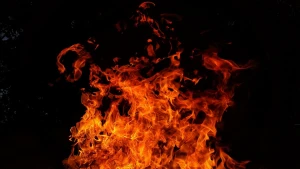
Russia will intensify its offensive in Donetsk after Kherson retreat - ISW
The Russian offensive in the Donetsk region will intensify in the coming weeks, as additional mobilized soldiers and the withdrawn from the Kherson region troops arrive there.
According to the Institute for the study of War, “Putin likely elevated Surovikin and let him withdraw from western Kherson on condition that he take the rest of Donetsk Oblast using Russian forces recouped from western Kherson as well as newly-arriving mobilized servicemen.”
The ISW experts believe the resumption in the intensity of Russian offensive operations, first around Bakhmut and then to the southwest around the Vuhledar area, has influenced Putin to make such a decision.
Russian offensive operations in the Donetsk region will intensify in the coming weeks, as additional mobilized servicemen will arrive along with the forces withdrawn from western Kherson, the Institute emphasizes.
“Ukrainian forces in the area will find themselves hard-pressed, and Kyiv will very likely have to divert troops to defend against these renewed Russian offensives,” ISW report states.
Despite their intensified efforts, the Russians are unlikely to achieve operationally significant gains, although they may theoretically seize Bakhmut over time at great expense, the experts say.
The report continues that Russian mobilized servicemen have shown themselves to be inadequately trained, poorly equipped, and very reluctant to fight.
They are being deployed as replacements to forces that have been fighting nonstop for nine months, have sustained terrible losses in men and equipment, and are mostly demoralized themselves, but they are not arriving in cohesive units; instead, they are mostly being sent as individual or small unit replacements.
ISW writes that Russian forces operating in Donetsk Oblast include conventional units of the regular Russian Armed Forces, mobilized servicemen, Wagner Private Military Company troops, BARS (Russian volunteer reserve) formations, militia units from the Donetsk and Luhansk People’s Republics, soldiers from Ramzan Kadyrov’s Chechen units, and volunteer battalions. This bizarre conglomeration of combat forces will have far less effective combat power than a grouping of regular units of comparable size.
It is highly unlikely that Surovikin will be able to transform it into a force capable of engaging in large-scale offensive mechanized maneuver warfare, especially given the fact that he isn't even taking the time to build a cohesive assault force before launching the attack.
"This weird mix of forces will likely make some gains through sheer weight of numbers, but Ukrainian defenders, likely reinforced, will most probably force it to a halt over the next few months not far from its starting points," ISW experts believe.
In order to conduct defensive and counteroffensive operations, Ukraine will probably recoup military strength from western Kherson and redistribute it to other locations.
The AFU may theoretically attempt to chase the Russians across the Dnipro River at different spots, although this is doubtful given how difficult it would be to support a Ukrainian encampment on the eastern bank. As a result, the AFU is more likely to solidify its grip on the western side, maintain a sizeable force to deter any further Russian attempts to cross the river, and reallocate its resources to other fronts.
ISW estimates that the Russian offensive in Donetsk region will probably force the AFU to divert some forces to protect that region, but the AFU will probably send at least some of the recouped combat power either to strengthen its ongoing counteroffensive in Luhansk region or to launch another counteroffensive somewhere else.
Experts also regard a cessation or prolonged slowing of combat operations over the next few months as very unlikely.
- News














































